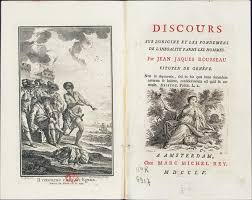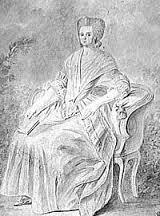 A most fashionable way of thinking about politics in the 18th century, was to hypothesize what life would be like without any form of political government, and argue that it would intolerable, so that no matter how badly off we might be in this world, in a world without government, we would be worse off. This relied on the assumption that in the state of nature, we would be unhappy. As Hobbes famously put it, life in the state of nature would be 'nasty, brutish and short'. Rousseau is often portrayed as disagreeing with Hobbes on this. After all, the savage human being for him is carefree and happy, living in a land of plenty, and has no need for war or strife. But even Rousseau believed that as soon as one human being meets another, they become enemies, compete and war against each other. The only way out is civilization and government. One writer stands out in disagreement with this pessimistic view of humanity in its 'natural' state - or rather she would stand out if she were still read. Olympe de Gouges wrote a short philosophical treatise in 1788, in which she argued, against Rousseau, that human beings in the state of nature would have been, not only happy, but quite capable of living with each other, collaborating on projects and forming lasting loving relationships.
What does she base her belief on? Her own childhood experience of a simple, free and outdoors upbringing. In Le Bonheur Primitif, she speculates on the daily lives of the people Rousseau calls 'savages'. She surmises, for example, that the way in which the first breads were made may have been similar to how she was making bread as a child, laying the dough on hot ashes, and remembers how pleasant that experience was. This, she claims, gives her an insight into the lived experience of primitive people.
0 Comments
Leave a Reply. |
About
This is where I live blog about my new book project, an intellectual biography of three French Revolutionary women philosophers. Categories
All
Archives
November 2022
|

 RSS Feed
RSS Feed